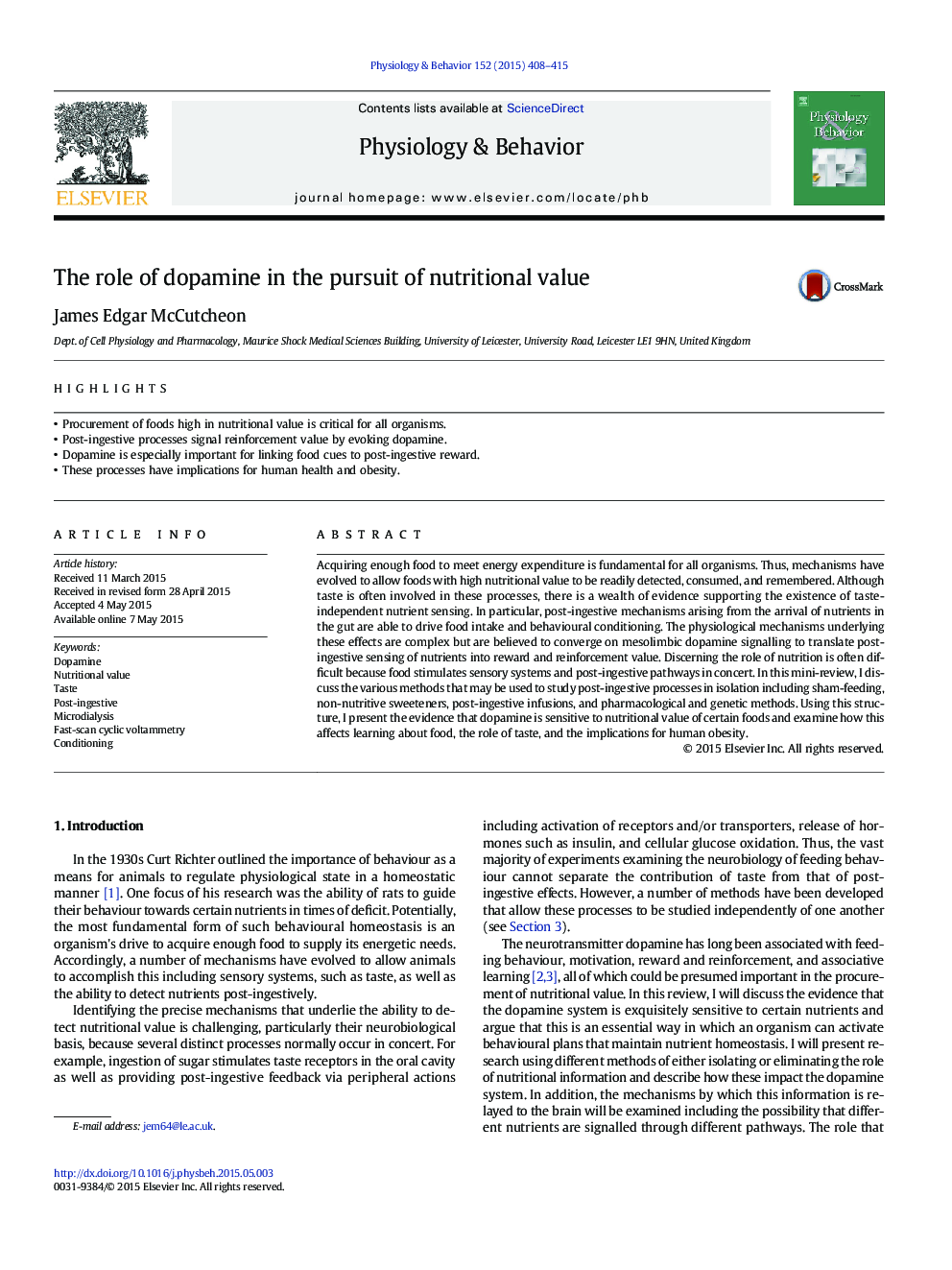| کد مقاله | کد نشریه | سال انتشار | مقاله انگلیسی | نسخه تمام متن |
|---|---|---|---|---|
| 5923184 | 1166294 | 2015 | 8 صفحه PDF | دانلود رایگان |
- Procurement of foods high in nutritional value is critical for all organisms.
- Post-ingestive processes signal reinforcement value by evoking dopamine.
- Dopamine is especially important for linking food cues to post-ingestive reward.
- These processes have implications for human health and obesity.
Acquiring enough food to meet energy expenditure is fundamental for all organisms. Thus, mechanisms have evolved to allow foods with high nutritional value to be readily detected, consumed, and remembered. Although taste is often involved in these processes, there is a wealth of evidence supporting the existence of taste-independent nutrient sensing. In particular, post-ingestive mechanisms arising from the arrival of nutrients in the gut are able to drive food intake and behavioural conditioning. The physiological mechanisms underlying these effects are complex but are believed to converge on mesolimbic dopamine signalling to translate post-ingestive sensing of nutrients into reward and reinforcement value. Discerning the role of nutrition is often difficult because food stimulates sensory systems and post-ingestive pathways in concert. In this mini-review, I discuss the various methods that may be used to study post-ingestive processes in isolation including sham-feeding, non-nutritive sweeteners, post-ingestive infusions, and pharmacological and genetic methods. Using this structure, I present the evidence that dopamine is sensitive to nutritional value of certain foods and examine how this affects learning about food, the role of taste, and the implications for human obesity.
Journal: Physiology & Behavior - Volume 152, Part B, 1 December 2015, Pages 408-415
